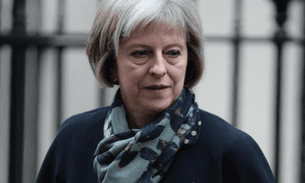Lawyers warn that proposed statelessness powers may be illegal
Home Office plans to remove the British citizenship of terror suspects even if they are made stateless could cause ‘considerable’ damage to Britain’s international relations and will prove a ‘wastage of public money’, leading immigration lawyers have warned.
On Monday, the House of Lords will debate an amendment to the Immigration Bill that would expand the Home Secretary’s ability to revoke British citizenship, enabling her to act even if it makes people stateless, which is currently banned.
But two separate legal opinions warn that Britain may breach its international obligations if it makes people stateless. They also raise serious concerns about other aspects of the proposal.
Professor Guy Goodwin-Gill, a leading immigration lawyer and fellow of All Souls College, Oxford, wrote that other countries would be ‘entitled to ignore’ any order by the British government that left an individual stranded and stateless on their territory. ‘There is considerable potential here for damage to the United Kingdom’s international relations,’ he wrote.
And lawyers at the Open Society Justice Initiative have produced another opinion that questions whether the proposal is an illegal reversal of earlier commitments to not make people stateless.
Related story – Making people stateless is ‘simply wrong’, say MPs ahead of Lords debate
The Home Secretary, Theresa May, currently has the power to strip dual nationals of their British citizenship if she deems their presence ‘not conducive to the public good’ – a designation normally reserved for terror suspects – or if they have gained nationality fraudulently. Where cases are on conducive grounds, she cannot remove British citizenship if it will leave the individual stateless.
There have been at least 27 people stripped of the UK citizenship on these grounds since 2006. A further 14 individuals have lost their nationality on the grounds that they obtained it by fraud.
In January, May won resounding parliamentary approval for the last-minute addition to the Immigration Bill of a clause that would allow her to strip the citizenship of Britons who hold no second nationality, rendering them stateless.
This followed the case of an Iraqi-born man, Hilal al-Jedda, who last year successfully appealed the decision to strip him of his British nationality on the basis that he would have been made stateless. May quickly issued an order to strip Jedda’s citizenship a second time.
May told parliament, as the Home Office had argued in the Jedda case, that the new power would only be used ‘where the individual could access the citizenship of another country.’ She added: ‘That is the whole point.’
When pressed on this by the parliamentary Joint Committee on Human Rights, the Home Office directly contradicted its Home Secretary, saying ‘the [statelessness] power is not limited to those who have recourse to another nationality.’
But Goodwin-Gill wrote: ‘Statelessness is not about options or eligibility, but about the facts here and now.’ Any attempt by the Home Office to argue that it could render someone stateless based on their ability to gain another nationality was ‘wishful thinking,’ he added.
Related story – ‘My British citizenship was everything to me. Now I am nobody’ – A former UK citizen speaks out
MPs raised concerns over the Immigration Bill’s statelessness clause at a Westminster Hall debate last month, when immigration minister James Brokenshire said the Home Office does not as a ‘particular tactic’ wait until individuals are abroad before stripping them of their British citizenship.
An investigation by the Bureau found that of 17 people it has identified who have lost their citizenship on conducive grounds, 15 were out of the UK when the order to deprive their nationality had been given.
The Home Office maintains that its proposed expansion of deprivation of citizenship powers are part of its efforts to ‘protect the public.’ But both Goodwin-Gill and Simon Cox, migration lawyer at the Open Society Justice Initiative, which documents statelessness around the world, question the efficacy of leaving terror suspects stranded abroad compared to putting them on criminal trial.
Goodwin-Gill said Britain could be in contravention of as many as four anti-terrorism conventions to which it is a party were it to render terror suspects stateless while abroad.
‘This is also hardly the conduct to be expected of a responsible member of the international community,’ he added.
Cox questioned the assertion May made to parliament that reintroducing the ability to make people stateless ‘is consistent with our obligations under international law’.
Related story – Home Secretary pushes through ‘controversial’ powers to make people stateless
Britain is a signatory to the 1961 UN Convention on the Reduction of Statelessness, but when it signed the convention, it retained the right to render citizens stateless if they had conducted themselves in ‘a manner seriously prejudicial to the vital interests’ of the UK. This reservation was repealed in 2002. The current statelessness clause seeks to revert national law back to its pre-2002 provisions.
The Home Office maintains the Bill would bring the UK back into line with the international community, an assertion fiercely disputed by Cox, who says it cannot simply reverse its 2002 decision and ‘restore old laws’.
He added said that rendering someone stateless could increase the risk they posed to the UK.
‘In a globalised world, the protection of the British public depends on law and order internationally – the willingness and ability of states to act lawfully. Using statelessness against individuals threatens this system and therefore the safety of British people at home and abroad,’ he told the Bureau. ‘This sends the message that UK thinks it is more important to offload dangerous people on other countries than it is to make the world a safer place.’
Peers have tabled a series of amendments to the proposal, which will be debated in the House of Lords on Monday. Goodwin-Gill warned the government risked a ‘considerable wastage of public money’ by attempting to ‘defend the indefensible’ in reintroducing statelessness.




